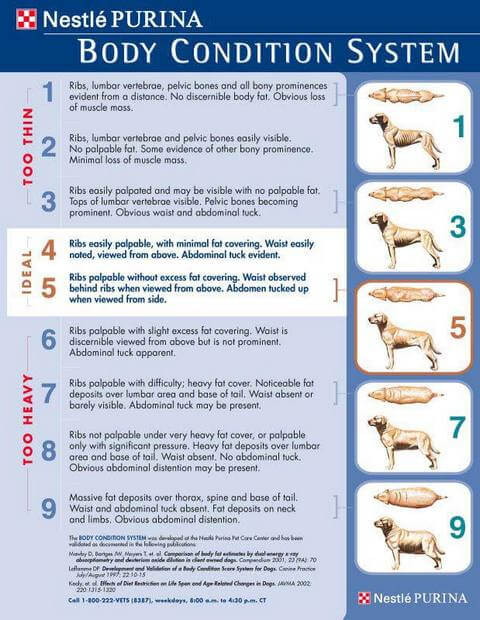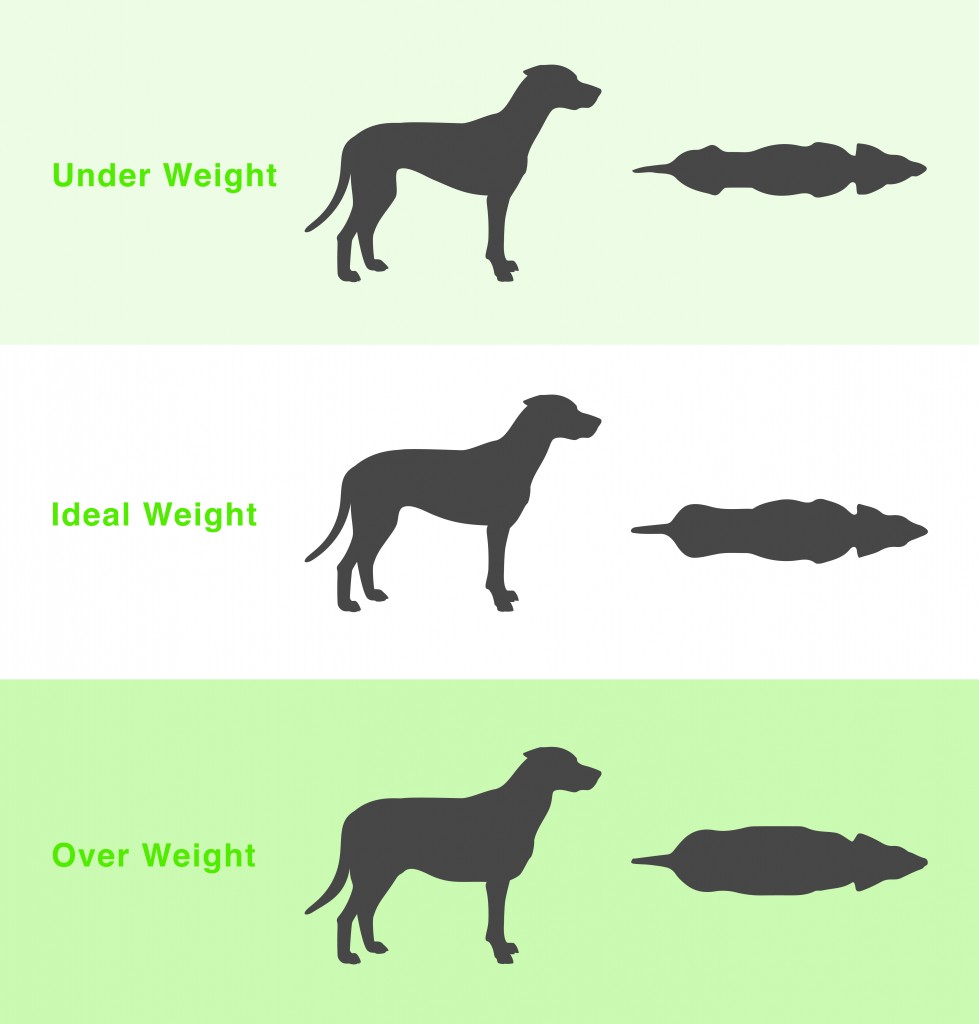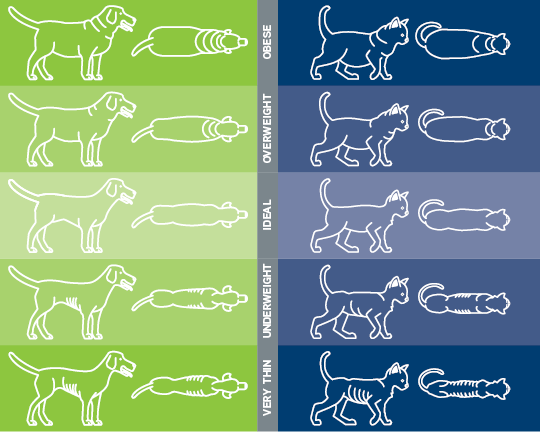A reasonable weight for your dog will vary based on its size and breed. Determining the ideal weight for your dog is essential for its overall health and well-being.
The best way to ascertain your dog’s ideal weight is through a weigh-in at your veterinarian’s office. Your veterinarian can provide specific guidelines based on your dog’s size and breed. Different breeds have different healthy weight ranges, and it is important to consider these factors when determining a healthy weight for your dog.
Additionally, visual cues such as visible ribs for certain breeds can be an indicator of a healthy weight. Ensuring your dog maintains a reasonable weight is crucial for its long-term health and quality of life. By identifying and maintaining a healthy weight for your dog, you can help prevent various health issues and ensure your furry friend leads a happy and active life.
Factors Affecting Dog Weight
Determining a reasonable weight for your dog involves considering various factors that can influence their overall health and well-being.
Breed And Size Influence
- Different dog breeds have varying ideal weight ranges based on their size and build.
- Small breeds like Chihuahuas will naturally weigh less than larger breeds like Great Danes.
- Understanding your dog’s breed characteristics is crucial in determining a healthy weight.
Age And Activity Levels
- Older dogs may require adjustments to their weight due to changes in metabolism and activity levels.
- Highly active breeds like Border Collies may need more calories to maintain an optimal weight.
- Finding the right balance between diet and exercise is key to managing your dog’s weight.
Regular monitoring of your dog’s weight and body condition score is essential for ensuring they remain at a healthy weight. Consult your veterinarian for personalized advice on maintaining your dog’s ideal weight.

Credit: www.dogfoodadvisor.com
Determining Your Dog’s Ideal Weight
Determining your dog’s ideal weight is crucial for their overall health. It is important to consult your veterinarian to determine a reasonable weight based on your dog’s breed and size, as a healthy weight may vary from breed to breed.
Monitoring your dog’s weight and ensuring they maintain a healthy body condition can contribute to their overall well-being.
Consulting With A Veterinarian
It is advisable to consult with a veterinarian to determine the ideal weight for your dog. A veterinarian can consider your dog’s breed, age, activity level, and overall health to provide personalized guidance on the appropriate weight range.
Using Body Condition Scores
Body condition scores help in evaluating your dog’s ideal weight by assessing its body fat. By using a standardized scoring system, such as a 1-9 scale, you can visually and manually determine if your dog is underweight, overweight, or within the ideal weight range.
It is crucial to take proactive steps in maintaining your dog’s ideal weight, as it significantly impacts their overall well-being and longevity. By carefully monitoring your dog’s weight, consulting with a veterinarian, and utilizing body condition scores, you can ensure that your furry companion enjoys a healthy and fulfilling life.
Healthy Weight Guidelines
Determining a reasonable weight for your dog involves considering their size, breed, and overall health. Consult with your veterinarian to ensure your dog maintains a healthy weight that is appropriate for their specific needs.
Exploring Breed-specific Weight Ranges
When it comes to determining a healthy weight for your dog, it’s important to take their breed into consideration. Different breeds have different body structures and metabolic rates, which can affect their ideal weight. It’s worth noting that while there are general breed-specific weight ranges, individual variations within each breed are common. To get a better understanding of your dog’s breed-specific weight range, you can refer to the guidelines provided by the Association for Pet Obesity Prevention. Here are a few examples:
| Dog Breed | Female Weight (pounds) | Male Weight (pounds) |
|---|---|---|
| Australian Shepherd | 40-55 lb | 50-65 lb |
| Beagle | 20-22 lb | 22-24 lb |
| Boxer | 55-65 lb | 65-80 lb |
| Cairn Terrier | 13-16 lb | 14-16 lb |
Understanding these breed-specific weight ranges can give you a general idea of what a healthy weight for your dog should be. However, it’s important to remember that individual variations exist within each breed, and other factors such as age, activity level, and overall health should also be taken into account.
Understanding Variations In Ideal Weight
Even within the breed-specific weight ranges, there can be variations in what is considered an ideal weight for a dog. Just like with humans, dogs come in different shapes and sizes. Some dogs may naturally have a smaller or larger frame, which can impact their ideal weight. If you’re unsure about the ideal weight for your dog, consulting with your veterinarian is always a good idea. Vets have the expertise and knowledge to assess your dog’s overall health and recommend a suitable weight range. They will take into consideration your dog’s breed, size, body condition, and any underlying health conditions that may affect their weight. Remember that a healthy weight for your dog is essential for their overall well-being. It can help prevent obesity-related health problems such as joint issues, diabetes, and heart disease. By staying within the breed-specific weight ranges and working with your veterinarian, you can ensure that your furry friend maintains a healthy weight and leads a happy, active life.
:max_bytes(150000):strip_icc()/DogWeight-chart-FINAL-ea188e08a73b4d3381ab261e0ded7210.png)
Credit: www.dailypaws.com
Tools For Weight Management
Ensuring your dog maintains a healthy weight is crucial for their overall well-being. Fortunately, there are various tools to assist in managing your dog’s weight effectively. Adopting these tools can contribute to your pet’s long-term health and happiness.
Utilizing Weight Charts And Guides
Weight charts and guides provide valuable information on the ideal weight range for different dog breeds. Here’s a table showcasing the healthy weight ranges for popular dog breeds:
| Dog Breed | Female Weight (pounds) | Male Weight (pounds) |
|---|---|---|
| Australian Shepherd | 40-55 lb | 50-65 lb |
| Beagle | 20-22 lb | 22-24 lb |
| Boxer | 55-65 lb | 65-80 lb |
| Cairn Terrier | 13-16 lb | 14-16 lb |
These guidelines help pet owners gauge if their dog is within the recommended weight range, allowing for necessary adjustments if required.
Importance Of Regular Exercise
Regular exercise plays a fundamental role in weight management for dogs. It not only helps them maintain a healthy weight but also enhances their overall fitness and mental well-being. As part of their daily routine, ensure your dog receives sufficient physical activity suitable for their breed and age.
Common Weight-related Issues
Determining an ideal weight for your dog depends on its breed and size. Consulting your vet is crucial for assessing your dog’s weight to ensure a healthy body condition. Different breeds may have varying ideal weights, so it’s important to consider individual characteristics for a reasonable weight assessment.
Signs Of Overweight And Underweight Dogs
Detecting signs of overweight or underweight dogs is crucial for maintaining their health.
- Overweight Dogs:
- Excessive body fat
- Lack of defined waistline
- Difficulty feeling ribs
- Underweight Dogs:
- Prominent ribs, spine, and pelvic bones
- Visible loss of muscle mass
- Lethargy and lack of appetite
Health Risks Associated With Improper Weight
Improper weight in dogs can lead to various health risks and complications.
- Obesity-related conditions
- Joint problems
- Cardiac issues
- Digestive disorders
Maintaining your dog’s weight within a healthy range is essential for their overall well-being.
Nutrition And Diet Considerations
Determining a reasonable weight for your dog is essential for their health. Consult your veterinarian to assess your dog’s size, breed, and ideal weight range. Monitor your dog’s body condition through touch and visual cues like visible ribs for sighthounds.
Regular exercise and a balanced diet are key for maintaining a healthy weight.
Balanced Diets For Maintaining Healthy Weight
Dogs need a well-balanced diet to maintain a healthy weight. A mix of proteins, carbohydrates, and fats is essential. Ensure your dog’s food is tailored to their age, breed, and activity level. A nutritious diet can prevent weight fluctuations.
Avoiding Overfeeding And Underfeeding
Overfeeding can lead to obesity, while underfeeding can result in malnutrition. Remember to follow portion guidelines based on your dog’s weight and adjust as needed. Avoid feeding table scraps or excessive treats.

Credit: www.thepetexpress.co.uk
Frequently Asked Questions For What Is A Reasonable Weight For My Dog
How Do I Determine My Dog’s Ideal Weight?
To determine your dog’s ideal weight, consult your vet for guidance based on your dog’s size and breed.
How Do I Know If My Dog Is The Right Weight?
To determine if your dog is the right weight, have a veterinarian weigh them. Different breeds have different ideal weights. For example, most sighthounds should have visible ribs. Your vet will assess your dog’s size, breed, and overall health to determine their ideal weight.
What Weight Should My Dog Be?
Your dog’s ideal weight varies by breed; consult a vet for personalized guidance. Keep them healthy with proper nutrition and exercise.
What Is A Healthy Weight For A Small Dog?
A healthy weight for a small dog varies depending on the breed. Consult with your veterinarian to determine the ideal weight for your specific breed.
Conclusion
To ensure your dog maintains a healthy weight, it’s important to consult with your veterinarian and monitor their body condition score. By actively engaging in regular exercise and providing a well-balanced diet, you can help your dog achieve and maintain an ideal weight suitable for their size and breed.
Remember, a healthy weight contributes to your dog’s overall well-being and longevity.



